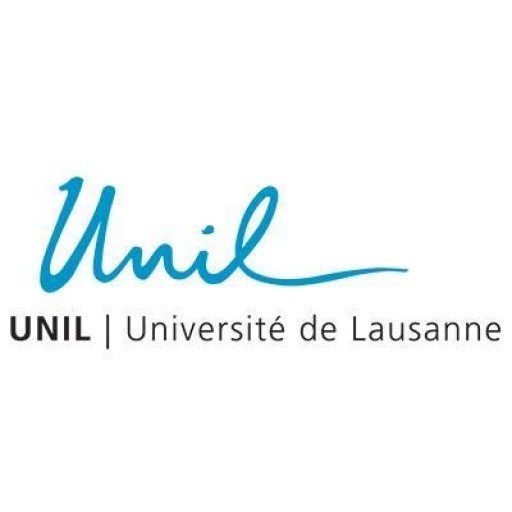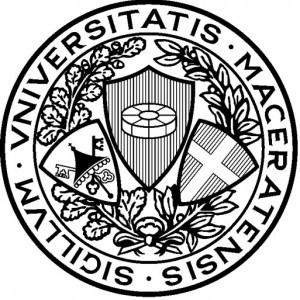Photos of university / #unilch
History of Economic Thought at the University of Lausanne offers an in-depth exploration of the evolution of economic ideas, theories, and philosophies from classical times to the present day. This program provides students with a comprehensive understanding of the development of economic thought and its impact on contemporary economic practices and policies. Through rigorous coursework, participants examine the contributions of key economists such as Adam Smith, David Ricardo, Karl Marx, John Maynard Keynes, and many others, analyzing how their ideas shaped economic theory and policy across different historical periods. The curriculum combines historical analysis with economic theory, encouraging students to critically assess the relevance and influence of past economic ideas on modern economic issues.
Students enrolled in this program will engage with a diverse set of topics, including the origins of economic science, the role of moral philosophy in economic reasoning, the development of market theory, and the impact of economic ideologies on social and political movements. The program emphasizes both theoretical understanding and the ability to contextualize economic ideas within their historical settings, fostering a nuanced perspective on the current economic landscape. The faculty, comprised of distinguished scholars in the history of economic thought, guides students through seminars, lectures, and research projects designed to cultivate critical thinking, analytical skills, and a deep appreciation of the historical dimensions of economics.
Graduates of this program will be equipped with the skills to pursue careers in academia, research, public policy, think tanks, or international organizations, where an understanding of economic history provides valuable insights into contemporary economic challenges. Moreover, the program prepares students for advanced studies or doctoral research in economics, history, philosophy, or related fields. With its multidisciplinary approach, the History of Economic Thought program at the University of Lausanne offers a unique opportunity for students passionate about understanding the roots of economic ideas and their relevance today, fostering a scholarly environment characterized by intellectual rigor and historical inquiry.
The Master's Degree in the History of Economic Thought at the University of Lausanne offers an in-depth exploration of the evolution of economic ideas and theories from their origins to contemporary debates. This program is designed for students interested in understanding how economic concepts have developed over time and how they influence modern economic policies and practices. Throughout the curriculum, students will engage with a broad range of topics, including classical economics, neoclassical thought, Keynesian economics, institutional and behavioral economics, and the history of economic analysis.
The program emphasizes critical thinking and analytical skills, encouraging students to examine seminal texts, trace the development of key economic doctrines, and assess the relevance of historical economic thought in today's context. Courses are structured to provide a comprehensive understanding of the socio-economic environments that shaped various economic theories, as well as the impact of historical events on economic thinking. Students will also analyze the contributions of prominent economists such as Adam Smith, David Ricardo, John Maynard Keynes, and others, in addition to exploring the development of economic institutions and policies.
The curriculum integrates lectures, seminars, and research projects, enabling students to develop their research capabilities and produce independent scholarly work. Emphasis is placed on comparative analysis across different periods and regions, fostering a nuanced understanding of the global evolution of economic ideas. The program also offers opportunities for interdisciplinary study, connecting economic history with political science, philosophy, and sociology.
Graduates of this program will be well-equipped for careers in academia, research institutions, think tanks, or roles that require a deep understanding of the historical context of economic ideas. They will have gained valuable skills in critical analysis, scholarly research, and written and oral communication, making them suitable for engaging with complex economic issues from a historical perspective. Overall, the Master's in the History of Economic Thought provides a rigorous and enriching academic experience that prepares students to contribute thoughtfully to discussions on economic policies, history, and theory.
Admission to the Master's program in History of Economic Thought at the University of Lausanne requires applicants to hold a Bachelor's degree or equivalent in economics, history, or related fields from an accredited institution. Prospective students must submit a completed online application form along with academic transcripts, a CV detailing relevant educational and professional experience, a motivation letter outlining their interest in the program, and two letters of recommendation from academic or professional references. Proficiency in English must be demonstrated through standardized language tests such as TOEFL or IELTS, with minimum scores set by the university. Applicants are also required to provide a short research proposal describing their areas of interest within the history of economic thought and potential research questions they wish to explore during their studies. The selection process considers academic performance, relevant background, motivation, and language proficiency. The program is designed to facilitate a comprehensive understanding of the history of economic doctrines, influential economists, and the development of economic theories over time. It includes coursework, seminars, and a research component culminating in a master's thesis. Students are encouraged to engage in interdisciplinary studies, integrating insights from history, philosophy, and economics. The program aims to prepare graduates for careers in academia, research institutions, policy analysis, and cultural organizations. To ensure a high-quality learning environment, applicants are advised to demonstrate strong analytical skills, a passion for historical inquiry, and a capacity for critical thinking. The program is offered in English, and non-native speakers are advised to meet the English language requirements before applying. The university periodically updates curriculum and admission criteria, so applicants are advised to consult the official university website for the most current information. Admission decisions are communicated approximately six to eight weeks after the application deadline. International students have access to university support services for visa arrangements, accommodation, and integration into campus life. Financial aid options, including scholarships and assistantships, are available based on academic merit and need. Prospective students should prepare all application materials carefully to enhance their chances of admission to this competitive program.
Students enrolled in the History of Economic Thought program at the University of Lausanne can generally expect a range of financing options to support their studies. The university offers various scholarships and financial aid programs designed to assist both domestic and international students. These include merit-based scholarships awarded based on academic excellence, need-based grants for students demonstrating financial hardship, and mobility grants for those participating in exchange programs. Additionally, students may explore external funding opportunities such as government grants, private scholarships, and international funding bodies that support students pursuing economics-related studies. The university also provides guidance and support services to help students identify and apply for suitable financial resources. Tuition fees at the University of Lausanne are generally structured to be accessible, with specific amounts varying depending on the student's nationality, residency status, and whether they are enrolled full-time or part-time. International students may have different fee structures compared to Swiss students, though the university strives to maintain affordability. In addition to scholarships, students are encouraged to consider part-time employment opportunities in Lausanne, a vibrant city with various part-time jobs in academic, administrative, or service sectors, which can help offset living expenses. The university also frequently updates its scholarship offerings, so prospective and current students should regularly consult the official university website or contact the university’s financial aid office for the most current information. Overall, while studying the History of Economic Thought at the University of Lausanne involves some financial investment, substantial resources and support are available to help students manage their study expenses effectively and focus on their academic pursuits.
The History of Economic Thought program at the University of Lausanne offers students a comprehensive exploration of the development of economic ideas from classical to modern times. This specialization provides an in-depth understanding of how economic theories have evolved over centuries and their impact on contemporary economic policies. The curriculum typically covers key figures such as Adam Smith, David Ricardo, John Maynard Keynes, and Milton Friedman, as well as major schools of thought including classical economics, neoclassical economics, Keynesianism, and behavioral economics. The program emphasizes critical analysis of original texts and promotes an understanding of the historical context that shaped economic theories. Students learn to evaluate the influence of historical ideas on current economic debates and policy decisions.
The program is designed to develop analytical skills, historical awareness, and a deep understanding of economic concepts. It combines lectures, seminars, and independent research, encouraging active participation and scholarly inquiry. Students may have opportunities for research projects, presentations, and possibly internships related to economic history or policy analysis. The program aims to prepare graduates for careers in academia, research institutions, think tanks, government agencies, or international organizations where knowledge of historical economic thought is valuable.
The university provides state-of-the-art resources, including access to extensive libraries, archives, and online databases for research purposes. Interaction with faculty members who are experts in economic history and philosophy enhances the learning experience. The language of instruction is primarily English, making it accessible to international students interested in historical economic studies. The program typically spans one or two years, depending on the level of study (bachelor’s or master’s), and often offers a final thesis or research project as part of the degree requirements. Overall, the History of Economic Thought at the University of Lausanne aims to equip students with a solid understanding of the evolution of economic ideas, fostering scholarly debate and critical thinking about the past, present, and future of economic science.










